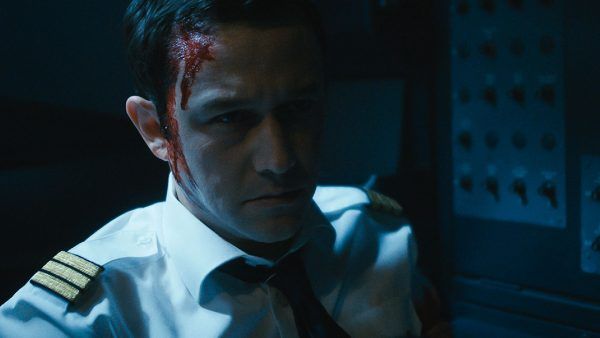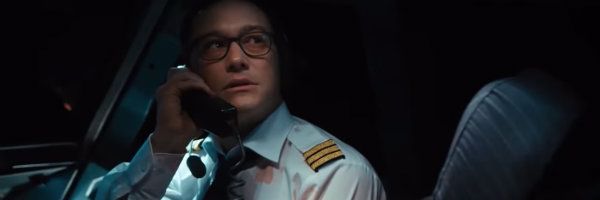[Editor's note: The following contains spoilers for 7500.]Soon after scoring an Academy Award nomination for his short film, Everything Will Be Okay, writer-director Patrick Vollrath got to work on his very first feature, 7500. The movie stars Joseph Gordon-Levitt as an American pilot serving as the co-pilot on a flight from Berlin to Paris. Shortly after takeoff, the plane is hijacked and Tobias must do whatever it takes to get the passengers to safety while confined to the cockpit. For those of you who have yet to see 7500, go check it out on Prime Video and then return to this article, because the rest of this piece is all about the ending of the movie!7500 concludes with Tobias being trapped in the cockpit with one young hijacker, Omid Memar’s Vedat. When Vedat can’t go through with crashing the plane, he agrees to work with Tobias in order to safely land the plane in Hannover where Vedat expects them to refuel, take off and continue to run. Trouble is, the refueling process takes far longer than Vedat expects. While waiting for the local authorities to meet his demands, Vedat and Tobias get to know each other a little better, but Vedat’s behavior become increasingly volatile. When Vedat refuses to lower his weapon, he’s shot and killed. At that point, the movie does something it hasn’t since the opening shots - have the camera leave the cockpit. When the police board the plane and escort Tobias, the moment is captured by a camera positioned in the plane cabin.[caption id="attachment_904425" align="alignright" width="360"] Image via Amazon[/caption]Why exactly did Vollrath choose to make that move at that particular moment? We got the chance to talk spoilers with him after the spoiler free portion of our interview and he addressed some of those details. Check out his answers to the questions below to learn more about that last shot, Tobias’ life after this experience, and Vedat’s fate.Almost the entire movie minus the opening shots are in the cockpit. Why choose that particular angle with the camera in the cabin for your final shot?VOLLRATH: I think it was important to leave the cockpit at the end, not just for Tobias, but also for the audience. Tobias is free again, he is physically not locked in anymore, he can go back to the outside world, but everything that happened inside the cockpit will change his life forever.Now this place where minutes ago happened so much feels so calm now.Was there ever any consideration of adding a coda scene with Tobias? Something to show his life after what happened?VOLLRATH: What happens after all of this is up to the audience and I think they can imagine pretty good how hard it is to go back to his normal life.Did you ever consider a different fate for Vedat?VOLLRATH: No. Vedat's fate shows that this circle of violence will go on and on even if we try to stop it, there will come a bullet from somewhere else.
Image via Amazon[/caption]Why exactly did Vollrath choose to make that move at that particular moment? We got the chance to talk spoilers with him after the spoiler free portion of our interview and he addressed some of those details. Check out his answers to the questions below to learn more about that last shot, Tobias’ life after this experience, and Vedat’s fate.Almost the entire movie minus the opening shots are in the cockpit. Why choose that particular angle with the camera in the cabin for your final shot?VOLLRATH: I think it was important to leave the cockpit at the end, not just for Tobias, but also for the audience. Tobias is free again, he is physically not locked in anymore, he can go back to the outside world, but everything that happened inside the cockpit will change his life forever.Now this place where minutes ago happened so much feels so calm now.Was there ever any consideration of adding a coda scene with Tobias? Something to show his life after what happened?VOLLRATH: What happens after all of this is up to the audience and I think they can imagine pretty good how hard it is to go back to his normal life.Did you ever consider a different fate for Vedat?VOLLRATH: No. Vedat's fate shows that this circle of violence will go on and on even if we try to stop it, there will come a bullet from somewhere else.

